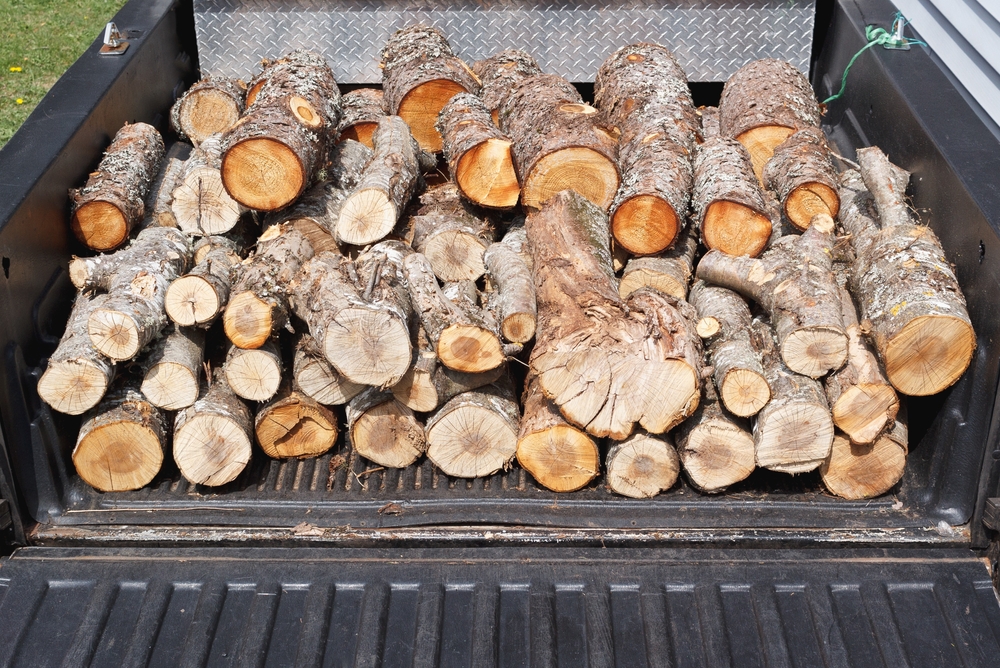Comparing Hardwood vs. Softwood for Heating Efficiency

When it comes to choosing the right type of firewood for heating your home, the debate often boils down to hardwood vs. softwood. Both types of wood have their distinct properties, benefits, and drawbacks when used as a heat source. In this article, we will delve into the key differences between hardwood and softwood, exploring their heating efficiency, burning characteristics, and overall suitability for home heating.
Hardwood and Softwood
What is Hardwood?
Hardwood comes from deciduous trees, which lose their leaves annually. These trees include species such as oak, maple, and cherry. Hardwood is typically denser and has a tighter grain structure compared to softwood. This density generally translates to a higher energy content per unit of volume, making hardwood a popular choice for heating.
What is Softwood?
Softwood, on the other hand, comes from coniferous trees, which have needles and produce cones. Common examples of softwood include pine, spruce, and fir. While softwoods are generally less dense than hardwoods, they can still be effective as a heat source, especially in regions where they are abundant.
Heating Efficiency of Hardwood vs. Softwood
Energy Content
When comparing softwood vs. hardwood for heating efficiency, one crucial factor is energy content. Hardwood generally contains more energy per cord than softwood due to its higher density. This means that hardwood can produce more heat over a longer period of time, making it a more efficient choice for heating large spaces or maintaining a consistent temperature.
Example:
- Oak: Approximately 24 million BTUs per cord
- Pine: Approximately 16 million BTUs per cord
Burn Time
Hardwood tends to burn longer and more steadily than softwood. This is due to its denser structure, which allows it to produce heat for an extended period. If you prefer a steady, long-lasting fire, hardwood might be the better option.
In contrast, softwood tends to burn faster and can create more creosote buildup in your chimney due to its higher resin content. This means that while softwood might be good for quick heat, it requires more frequent maintenance.
Heat Output
Hardwood generally produces a higher heat output compared to softwood. This is partly because hardwood burns hotter and more consistently. For those who prioritize maximum heat production, hardwood is often the preferred choice.
Softwood, while still effective, can produce a less intense heat and may require more frequent replenishing of the fire to maintain warmth.
Cost and Availability
Cost of Hardwood vs. Softwood
The cost of wood can vary significantly based on local availability, but hardwood is generally more expensive than softwood. This higher cost is attributed to the slower growth rate and more labor-intensive harvesting process of hardwood trees.
Softwood is often more affordable and widely available, making it an economical option for those who need a cost-effective heating solution. However, it’s important to consider both the initial cost and the efficiency of the wood when making your choice.
Availability
Availability can also impact your decision between hardwood and softwood. In some regions, hardwood may be less accessible or more expensive due to the local forest composition. Conversely, softwood might be more readily available in certain areas, especially in regions with extensive pine forests.
Environmental Considerations
Sustainability
When choosing between hardwood and softwood, sustainability is an important factor to consider. Both types of wood can be harvested sustainably, but the environmental impact can vary based on the sourcing practices.
Hardwood forests often take longer to regenerate, and their conservation is crucial to maintaining biodiversity. On the other hand, softwood forests can grow more quickly and may be more resilient to certain environmental pressures.
Carbon Footprint
Burning wood for heating has a lower carbon footprint compared to fossil fuels. However, the carbon footprint of hardwood vs. softwood can differ. Hardwoods, being denser, require less frequent cutting and transportation, potentially reducing their overall environmental impact.
Softwoods, with their faster growth rates, can sequester carbon more quickly, but their higher resin content may lead to increased emissions during combustion.
Practical Considerations
Storage and Handling
Storing and handling wood properly is essential for efficient heating. Hardwood generally requires longer seasoning times to dry out before use, while softwood can often be used sooner after cutting.
Proper storage is also crucial to prevent moisture absorption, which can reduce the heating efficiency of both hardwood and softwood. Ensure that your wood is stored in a dry, well-ventilated area to maximize its effectiveness.
Maintenance
Maintenance is another consideration when choosing between hardwood and softwood. As mentioned earlier, softwood can create more creosote buildup in your chimney, requiring more frequent cleaning and maintenance. Hardwood, with its slower burn rate and reduced resin content, typically results in less creosote and lower maintenance requirements.
Conclusion
When comparing hardwood vs. softwood for heating efficiency, both types of wood have their own set of advantages and disadvantages. Hardwood tends to offer higher energy content, longer burn times, and more consistent heat output, making it a preferred choice for those who need a reliable and efficient heat source. However, it also comes at a higher cost and requires more storage space.
Softwood, while generally more affordable and quicker to season, burns faster and can produce more creosote, necessitating more frequent maintenance. It can be a good option for those who prioritize cost and availability but may not offer the same level of efficiency as hardwood.
Ultimately, the choice between hardwood and softwood will depend on your specific heating needs, budget, and local availability. By understanding the key differences and considering your priorities, you can make an informed decision that best suits your home heating requirements.
Need Firewood in Lubbock, TX?
Here at Freedom Firewood in Lubbock, Texas, we take pride in offering a diverse selection of premium, fully seasoned, and ready-to-burn firewood to meet all your needs. Whether you’re looking for oak, hickory, mesquite, pecan, New Mexico pine, pinion pine, or a mixed variety, we have you covered. From one cord to a quarter cord, apartment stacks, and even convenient pre-bagged firewood, we provide the right quantity for you. Plus, with our local and long-distance delivery services, getting your firewood has never been easier. Contact us today to experience the warmth and quality of Freedom Firewood!
